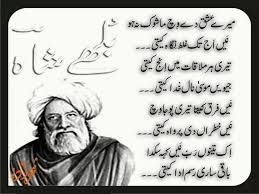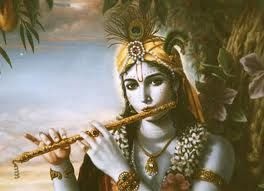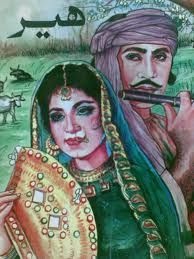
One ballad about the unity of matter is worth quoting in its entirety:
"All that moves is of earth. The appeal of the rider is earth; of earth is his steed. The rider of the earth. Earth apurs earth. The clatter is of earth. Earth fights with earth. The weapons are of earth. The earth which carries over much earth, that earth is proud. Of earth is the garden; of earth is the orchard; Of earth are the flowers; earth comes to see earth. Spring also is of earth. That which once laughed and rejoiced was of earth. That which now sleep is of earth."

"Bullah", says the poet, addressing himself in the last verse according to the invariable Eastern Custom, much as the French writer of ballads addressed in his envoy to his patron Prince. Bullah which you have found the answer to this riddle cast away pride and hurl it to ground.

"Oh flute-player, your flute has many holes and each one has its own note, but your song harmonizes all! Your song has robbed me of my heart. Every one can hear the flute, but few understand the meaning of song. It is only the lover who knows the meaning of the song. This mystery is deep, but who seeks for it, will find it."
The poet does not pretend that the union of man's soul with the divine is a thing everybody can understand. "I am Heer the lover; now I have become Ranjha the loved one. This mystery few understand."

It is curious how the poet uses names of Ranjha and Heer, the Hero and Heroine of one of the most famous historical Love Stories of the Punjab, to illustrate the relations between man's soul and the divine soul of the universe. One could not easily mistake one of Herrick's religious poems for one of his odes of Julia, but it is by no means always easy to say whether an Eastern poet is talking about human of divine love. Eastern readers of Hafiz insist that all his love poetry has religious meaning, but when he says that he likes his wine sixty years' old and his mistress sixteen, it is hard to believe that his meaning was spiritual. This reproach, however, cannot be laid upon Bullah Shah. All his admirers agree, and rightly so, that his poetry is purely spiritual.



